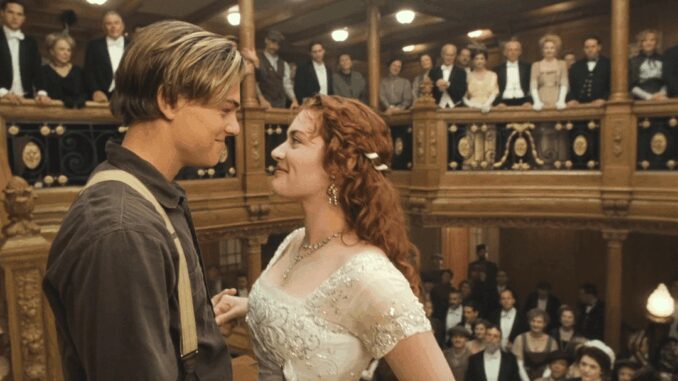
The aged Rose DeWitt Bukater, a woman who had lived a full century, closes her eyes for the last time. In that liminal space between life and the great beyond, she finds herself not in a serene afterlife with her husband, the stoic and kind man who gave her a family, but on the grand staircase of the Titanic, bathed in the golden glow of a ship miraculously restored. There, waiting for her, is Jack Dawson, arms outstretched, a mischievous grin on his face. This isn't just a nostalgic dream; it is the profound, symbolic choice of a soul, an enduring testament to why Rose, in her deepest essence, chose to spend eternity with the penniless artist rather than the wealthy, stable husband who saved her from social ruin.
To understand this choice, one must first understand the suffocating world from which Jack rescued her. Before Jack, Rose was a gilded bird in an opulent cage. Her fiancé, Caledon Hockley, represented everything she was expected to be: wealthy, respectable, and utterly devoid of genuine passion or understanding for her artistic spirit. Cal saw Rose not as a complex individual, but as a prized possession, an accessory to his immense fortune. His love was possessive, his control absolute, manifested in the suffocating corsets, the scrutinizing gazes, and the casual dismissiveness of her despair. Rose’s attempted suicide, thwarted by Jack, was not a mere cry for attention but a desperate plea for escape from a life she perceived as a slow, elegant death. Cal, and the world he embodied, offered security at the cost of her soul.
Into this stifling existence burst Jack Dawson, a vibrant, unbridled force of nature. He was the antithesis of everything Cal represented: poor yet rich in spirit, uncultured yet profoundly insightful, unburdened by societal expectations. Jack saw Rose, truly saw her, for the first time. He didn't see her lineage or her future inheritance; he saw her intelligence, her wit, her artistic longings, and her deep, unacknowledged sorrow. "You're not the kind of girl who wants to be saved," he mused, instantly grasping the core of her spirit. With Jack, Rose found not just romance, but freedom. He taught her to spit, to dance with the steerage passengers, to embrace the raw, unfiltered joy of living, to "make each day count." He challenged her to break free from the invisible chains that bound her, liberating her from the inside out.
Their love affair on the Titanic was not just a passionate fling; it was an accelerated journey of self-discovery. Jack became the catalyst for Rose's rebellion. The famous drawing scene, where she poses nude wearing only the Heart of the Ocean, is a profound act of defiance and vulnerability. It's not merely about shedding her clothes; it's about stripping away the layers of societal expectation, the very identity she was forced to wear, and revealing her true self to someone who cherished it. "I'm flying, Jack!" she cries at the bow of the ship, a moment less about the thrill of the wind than the exhilarating liberation of her spirit. By choosing Jack, Rose was choosing herself – her authentic desires, her latent courage, her right to live on her own terms.
Jack's ultimate sacrifice cemented his eternal place in her heart, not as a tragic lover lost, but as the architect of her freedom. "Promise me you'll survive," he urged, "never let go." This wasn't a plea for her to simply stay alive; it was a mandate to live, truly live, for both of them. And Rose honored that promise. Her life after the Titanic was a testament to Jack's influence: she rode horses like a man, learned to fly, became a mother, never spoke of Cal again, and ensured that the diamond, that symbol of Cal's ownership, ended up back in the ocean, a final release. Every breath she took, every independent choice she made, was a living monument to the spirit Jack awakened within her.
When Rose closes her eyes for the final time, her journey to the Titanic's grand staircase is not a betrayal of her long-lived, respectable marriage. It is the culmination of her true identity, the soul's deep longing for its genesis. Her husband provided stability, comfort, and love in a practical sense, allowing her to fulfill the promise of survival. But Jack gave her the blueprint for a life worth living, the courage to be herself, and the passion that fueled her for a century. In that ethereal reunion, Rose isn't choosing a man over another; she is choosing the life Jack showed her was possible, the freedom he embodied, and the authentic self he helped her discover. Her eternity is with Jack because he represents the liberated spirit, the true heart of Rose DeWitt Bukater, finally free and forever flying.